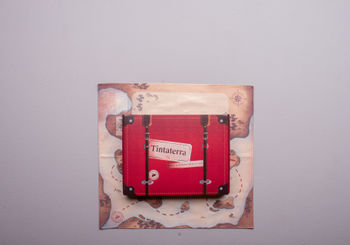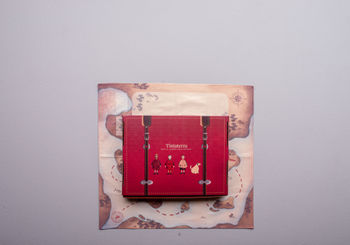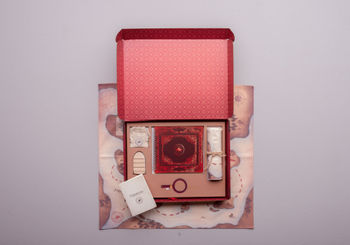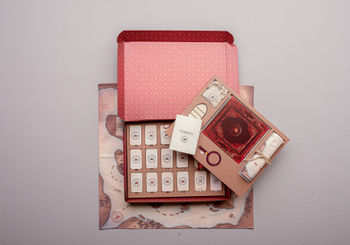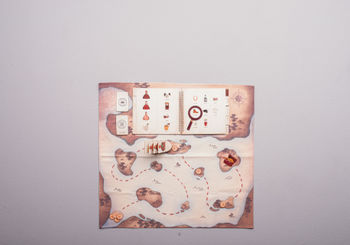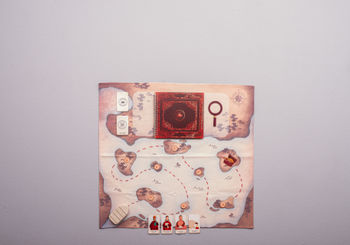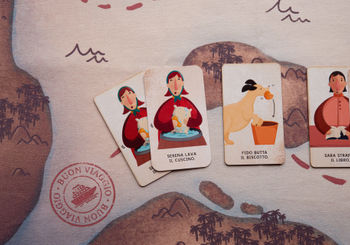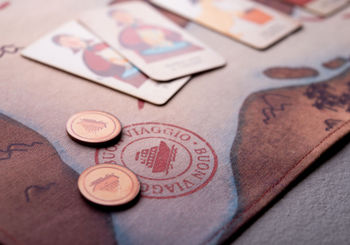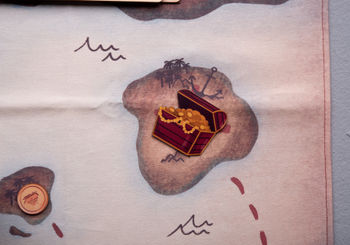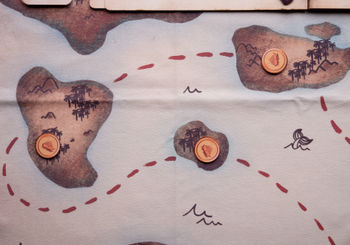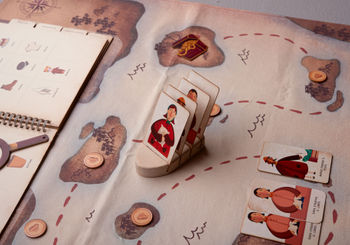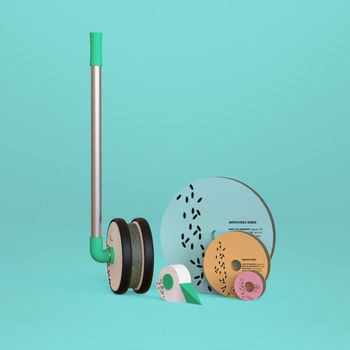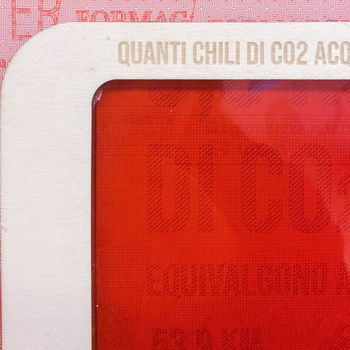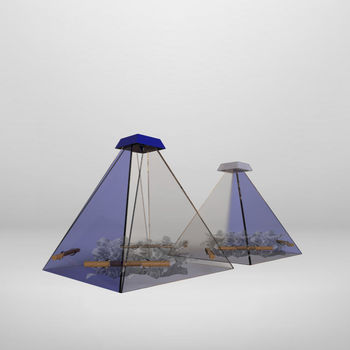Tintaterra – Verso la scoperta della sintassi
Isabel Righi
Communication is instinctively part of us from the first months of life. However, it is precisely during the childhood years that many children develop language problems. Through the help of experts and specific tools, it is possible, to help children improve their expressive abilities, thus promoting their social inclusion.
The tools used in this field mainly consist of playful exercises that use images and icons to facilitate the kid’s learning. These tools, however, are closely linked to their therapeutic component, remaining purely fun exercises and not real games (with a story, materials, images and stimulating mechanics). The combination of therapy and board game would allow any child, with or without a disorder, to play on the same level, partly eliminating the differences dictated by their respective difficulties.
The game ‘Tintaterra’, proposed by this dissertation, is a non-competitive therapeutic game for syntax development, with a target age of 4-5 years. Through the story of the Paroloni family, which has to prepare for its voyage, children are led to develop their language through the support of images and materials that stimulate their sensoriality.
The game is modular and allows the adult (speech therapist or parent) to adapt it to the needs of the child/children playing. The game aims both to improve comprehension, production and syntax development, and to create an inclusive and stimulating environment in which children with or without speech disorders can play side by side.
